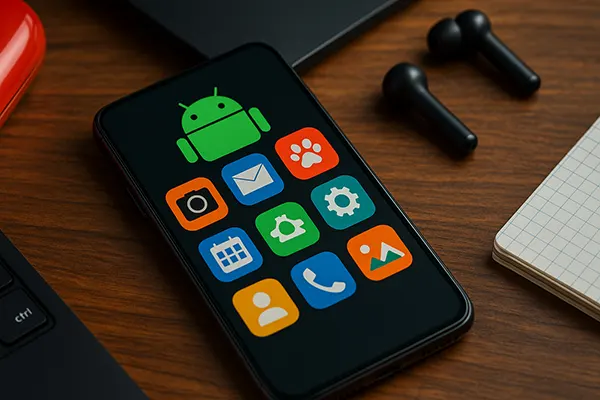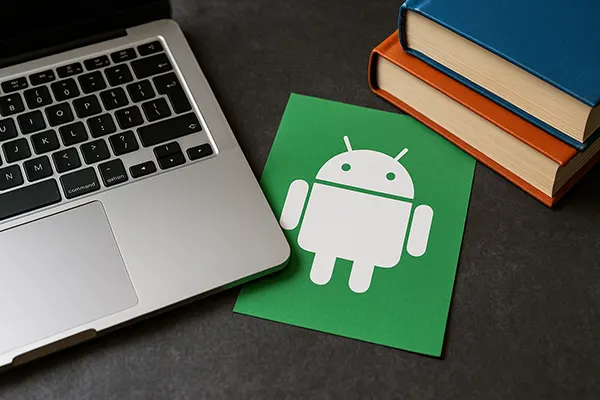
Open Source Apps for Smartphones: The Most Useful and Stable Solutions in 2025
Open source software continues to gain traction in the mobile ecosystem, with 2025 marking a notable year for privacy-focused, efficient, and transparent apps. As users become increasingly cautious about data privacy and digital autonomy, the demand for open-source smartphone apps has seen a marked rise. This article explores key free and open-source software (FOSS) apps that exemplify stability and usefulness across various categories.
Why Users Are Turning to Open Source in 2025
In 2025, smartphone users are no longer content with opaque privacy policies and proprietary tracking systems. With tech giants frequently involved in data-related controversies, users now prefer software that can be inspected, verified, and trusted. Open source offers precisely this—transparency, flexibility, and user control.
Another contributing factor is the global rise of digital sovereignty movements. From Europe to Southeast Asia, governments and individuals are advocating for technologies that respect national and personal digital rights. Open source software is a natural fit, enabling localised development and enhanced security reviews by communities.
Finally, developers themselves are driving adoption. With ecosystems like GitHub and GitLab thriving, community-maintained apps are often more responsive to user needs. Crowdsourced bug fixing and modular code contribute to greater stability and innovation across the open-source mobile app landscape.
Ethical Technology and Transparent Development
Users now question how their data is handled and who profits from their activity. Open-source apps typically do not monetise user data, instead focusing on offering ethical alternatives. The code is publicly auditable, ensuring transparency in how data is collected and processed—if at all.
This transparent development model attracts contributors from around the globe, which enriches software quality and ensures that no single entity has monopolistic control over the product. The result is often a better and more democratically shaped user experience.
Open source has also become a vehicle for digital inclusion. Developers can localise apps for underrepresented regions or adapt them for accessibility. These socially responsible practices contribute to the long-term stability and relevance of such apps.
Top Open Source Apps for 2025: Stability and Utility
Among the vast sea of open source apps available, a few stand out for their practical usefulness and exceptional stability. These include privacy-first communication tools, functional email clients, and minimalist replacements for default apps that come pre-installed on Android phones.
One such example is Simple Mobile Tools. This suite includes calendar, gallery, contacts, and other utilities, all designed without unnecessary permissions or dependencies. It’s ideal for users looking to reclaim their smartphones from bloated and ad-filled alternatives.
Another essential app is K-9 Mail, an advanced yet lightweight email client. With support for multiple accounts, PGP encryption, and offline access, it is trusted by journalists, activists, and professionals alike who require a dependable and secure communication channel.
Comparing Simple Mobile Tools, F-Droid, and K-9 Mail
Simple Mobile Tools shines in replacing core apps with privacy-respecting alternatives that don’t rely on Google services. It’s fully offline-capable and doesn’t include trackers or ads, offering users complete autonomy over their devices.
F-Droid acts as a central hub for discovering and installing trusted open-source apps. Unlike mainstream app stores, it is curated by volunteers and prioritises software that adheres strictly to FOSS principles. Its package management is secure and ideal for privacy-conscious users.
K-9 Mail remains the go-to for secure email communication. In 2025, it integrates smoothly with encryption tools like OpenKeychain and supports modern protocols such as OAuth2. Its long-standing reliability makes it a favourite even as new alternatives emerge.

Open Source Apps for Privacy, Productivity, and Communication
For privacy, tools like Signal and ProtonMail (both partially open-source) continue to lead. However, 100% FOSS alternatives like Session messenger are rising in popularity due to their decentralised architecture and open peer review process.
In the productivity space, apps like Tasks.org and Standard Notes offer rich features while respecting user data. These apps allow syncing across devices without compromising privacy, thanks to optional encrypted backups and self-hosting capabilities.
Communication-wise, the open-source community delivers innovative messaging and VoIP solutions. Jami, for instance, provides peer-to-peer calls without needing central servers, thus eliminating metadata risks and enhancing user privacy.
The Future of Mobile Open Source Ecosystems
As Android forks like CalyxOS and GrapheneOS gain traction, open-source apps are finding native support in secure environments. These operating systems favour FOSS apps and are often incompatible with proprietary Google frameworks, reinforcing the need for high-quality open alternatives.
Open source is also fuelling education and digital rights advocacy. Many NGOs now distribute pre-configured smartphones with FOSS tools for secure communication and knowledge sharing in politically sensitive regions. This trend illustrates the broader societal impact of mobile open source ecosystems.
Looking ahead, artificial intelligence integration into open-source apps is anticipated. Projects like Mindustry and KDE Connect already explore community-powered AI features that enhance productivity and interconnectivity without compromising control or transparency.
Popular topics
-
 VIM Coding Software Review
VIM Coding Software ReviewVim is a highly configurable text editor built to enable …
-
 Google Analytics. How to use this service?
Google Analytics. How to use this service?We should start with the fact that this service is …
-
 Why Dedicated Servers Outperform Regular Servers
Why Dedicated Servers Outperform Regular ServersIn the ever-evolving landscape of technology, businesses are continually faced …
-
 Top 5 popular programs for game developers
Top 5 popular programs for game developersIn the ever-evolving world of game development, the tools and …
-
 How Cryptocurrency Exchange Regulations Changed in 2025: ...
How Cryptocurrency Exchange Regulations Changed in 2025: ...Cryptocurrency exchanges worldwide have undergone significant regulatory changes in 2025. …
